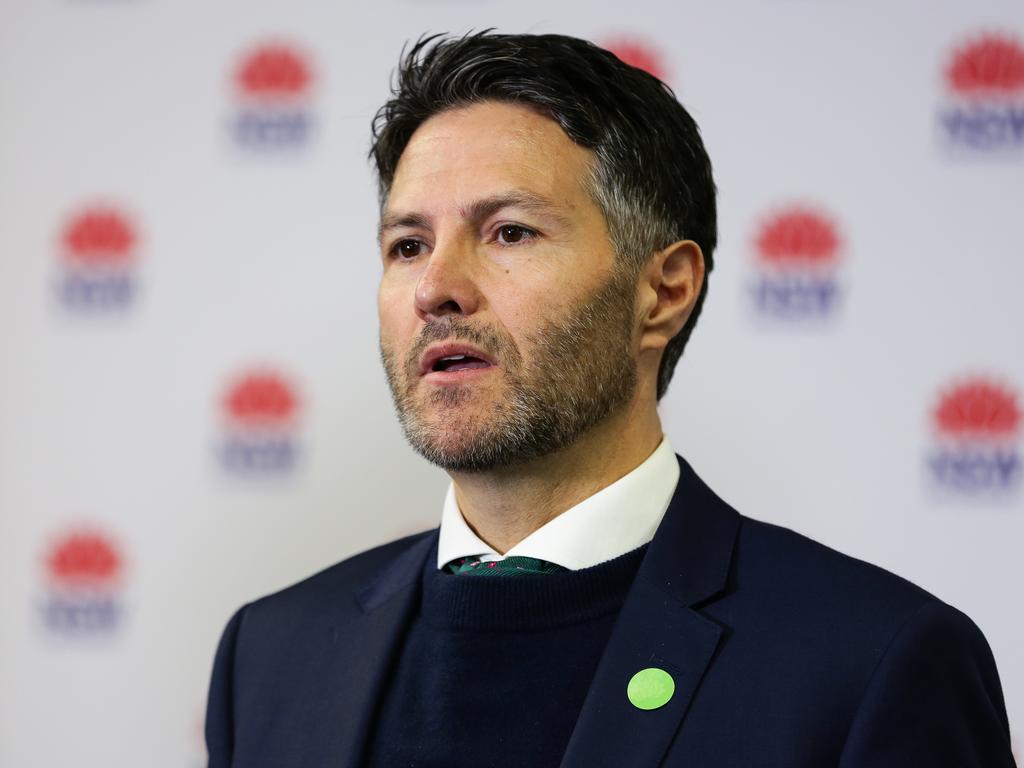Fast-track tax cuts, reduce the dole, ACCI urges
New analysis warns the costs of ongoing restrictions now outweigh the health benefits.

Scott Morrison faces fresh demands from business to fast-track personal income tax cuts and return the rate of Newstart to pre-COVID levels within six months, as new analysis warns the costs of ongoing restrictions now outweigh the health benefits.
A Menzies Research Centre paper being released on Wednesday finds that Australia navigated the global pandemic better than almost any other developed nation and the national cabinet should now “spare our economy from the worst of a global recession”.
Written by economists Henry Ergas and Joe Branigan before the recent outbreaks in Melbourne and Sydney, the analysis finds the initial predictions of 150,000 deaths were wildly inaccurate.
The paper calls for the long-term economic costs of COVID-19 restrictions to be audited, state borders to be immediately reopened, and says the benefits of the social distancing measures had declined as the threat of a mass contagion event in Australia receded.
It says that every national cabinet decision “must now be considered as an incremental weighing up of the costs and benefits of removing (or reinstating) a single restriction on a case-by-case and, where appropriate, region-by-region basis.”
Chief Medical Officer Brendan Murphy told a Senate inquiry into the government’s response to COVID-19 in May that Australia’s handling of the virus had avoided about 14,000 deaths.
“At the same time though, cost of restrictions on economic and social activity has increased, considerably altering the cost-benefit ratio of pursuing the lockdown policy,” the report states.
“The costs of retaining these measures as they now stand (in late May 2020) are almost certain to outweigh the benefits of avoided deaths and illness.”
As the nation faces its first recession in 29 years triggered by the COVID-19 pandemic and Josh Frydenberg puts his finishing touches on an economic update to be handed down next week, the Australian Chamber of Commerce and Industry warned the economy would be “scarred for the next few years and therefore vulnerable to further shocks”.
In its pre-budget submission, ACCI also tasks the national cabinet with delivering comprehensive tax reform, placing a moratorium on new regulation and achieving a national agreement on energy and carbon emissions policy.
As Labor and some Coalition MPs call for an increase to Newstart beyond the pre-pandemic rate of $40 a day, or about $560 a fortnight, ACCI said the JobSeeker payment should be phased out over stages and revert to the original Newstart payment.
Between September 24 and January 1 next year, the fortnightly $550 coronavirus supplement – paid on top of the $565 JobSeeker payment, which replaced Newstart – would be reduced but not eliminated.
From 2021, Australians who had been unemployed for less than 12 months would receive the equivalent of the previous Newstart entitlement to “incentivise the short-term unemployed to find a job as soon as possible”.
People who had been without work for more than a year would receive a supplement above the Newstart entitlement, which would be set for a certain time, or until the unemployment rate dropped to a particular level.
Unemployed Australians who needed to pay for internet would also receive a supplement to cover those costs.
While a six-week lockdown in Greater Melbourne, responsible for one fifth of the country’s economic output, has concerned industry groups eager to see Australia reopen, new figures released on Tuesday found close to eight in 10 jobs lost by young people in the depths of the pandemic had been regained by late June.
The Australian Bureau of Statistics found wages paid to those under 20 years old were now up by 12 per cent since mid-March as eligible casual and part-time employees enjoyed a boost to income from the $70bn JobKeeper scheme.
There was also a rebound in business confidence in June, which is now back to pre-COVID levels according to NAB’s latest business survey.
The Treasurer said while there were encouraging signs across the economy, new lockdowns in Victoria would impact on the recovery, noting spending growth in the state had fallen 3 per cent compared to a year ago.
“We shouldn’t downplay the seriousness of events in Victoria, but at the same time we cannot allow it to derail the progress being made across the country,” Mr Frydenberg said.
“The government’s ongoing economic response will continue to support an environment that encourages business investment and job creation as we all work together to get to the other side.”
National Farmers’ Federation president Fiona Simson indicated on Tuesday that the increased JobSeeker rate was acting as an incentive for Australians not to fill job vacancies in rural and regional communities.
ACCI said the government should bring forward its second and third stages of personal income tax cuts, which are legislated to begin in 2022-23 and 2024-25 respectively, to this financial year and the next in a bid to “increase household disposable income at a time when it is most needed”.
Under the plan, the 37 per cent bracket will be abolished and every dollar earned from $45,000 to $120,000 will be taxed at a rate of 30 per cent.
The 19 per cent tax rate is to be lifted from $37,000 to $45,000 from July 1 2022.
The business group recommended national cabinet - comprised of the Prime Minister, premiers and chief ministers - be used to begin a “comprehensive tax reform” process.
It suggested numerous taxes – including the luxury car tax, wine equalisation tax and fringe benefit tax on entertainment-related, childcare and gym membership expenses – be abolished.
The submission also calls for national cabinet to develop a national agreement on energy and carbon emissions policy, reprioritise infrastructure projects, place a moratorium on new regulation and restore permanent annual migration levels to 190,000.
Mr Frydenberg’s second budget was delayed from May 12 until October 6 due to the coronavirus pandemic.







To join the conversation, please log in. Don't have an account? Register
Join the conversation, you are commenting as Logout